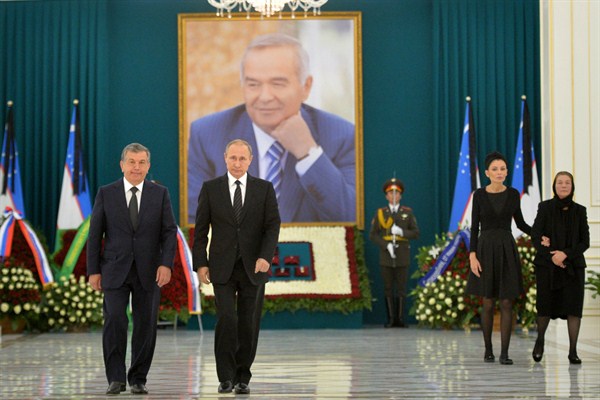Islam Karimov, who ruled Uzbekistan for 27 years, is dead. Rumors began circulating on Aug. 26 that the 78-year-old dictator had been hospitalized with a stroke. Official recognition came two days later. On Sept. 2, following endless speculation, Uzbek officials announced the death of the country’s long-serving strongman, which leaves a great deal of uncertainty. Almost half of Uzbekistan’s 32 million people have not known life without Karimov as president.
Karimov, who grew up in an orphanage in Samarkand, became first secretary of the Communist Party of Uzbekistan in 1989 and declared the republic’s independence on Sept. 1, 1991. He created a regime that ruled through repression, corruption and tight control over the country’s economic resources, including agriculture, minerals and natural gas. Uzbekistan is one of the most closed political systems in the world, and Karimov extended his rule through rigged constitutional amendments and flawed elections. Those who opposed him suffered the consequences: Uzbekistan has over 10,000 political prisoners. In May 2005, in the town of Andijan, soldiers opened fire on people protesting the arrest of 23 local businessmen. An estimated 700 men, women and children were killed.
As Uzbekistan enters the post-Karimov era, uncertainties abound. But two scenarios remain unlikely: Uzbekistan is neither going to become a democracy overnight, nor is it going to fall prey to an Islamist takeover. Instead, there will be a change in leadership—a new figurehead—but little change in how the country is ruled.

